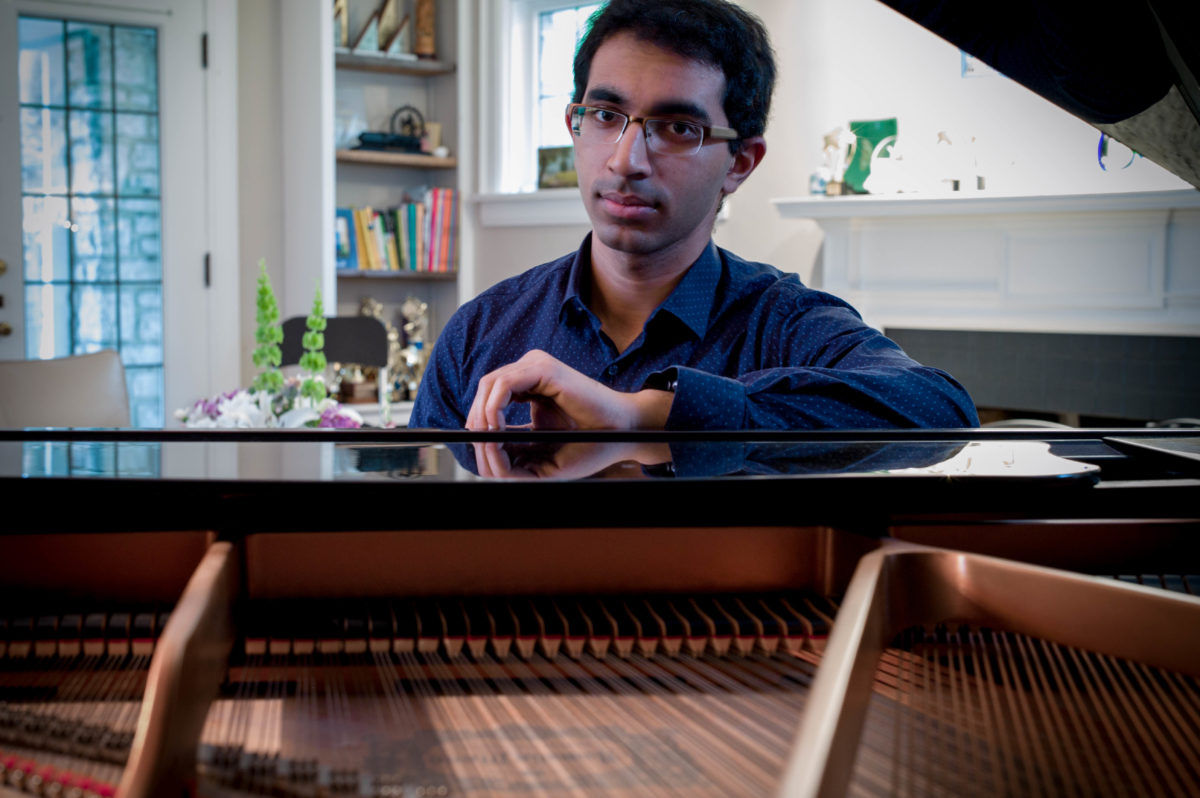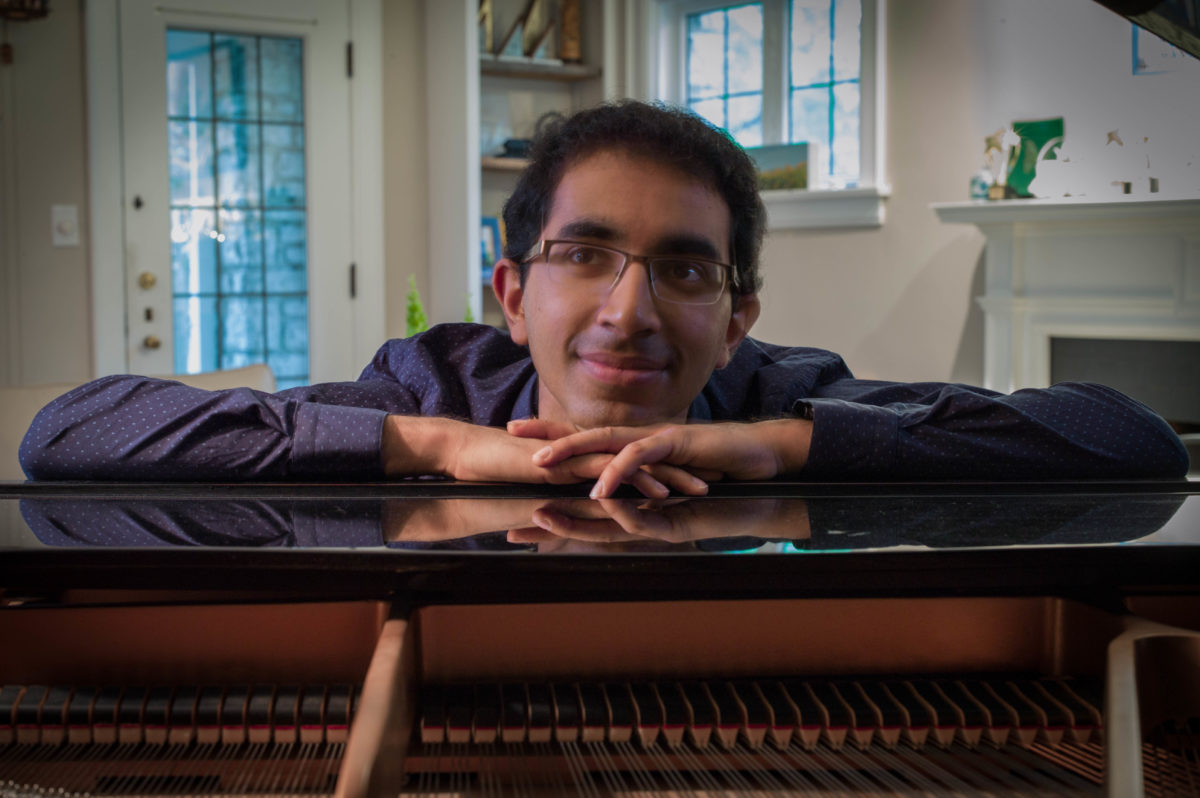Venkatesh Sivaraman ’20
On March 30, 2020 at 5p.m. Eastern Daylight Time, Venkatesh Sivaraman ’20 (Computational Biology) sat down at the five-foot Yamaha grand piano in his family’s Columbus, Ohio home and launched into the first notes of Alexander Scriabin’s challenging Sonata No. 2 in G-sharp minor. His audience—his cohort at MIT’s Emerson Fellowship Recital Series along with his teachers, all dispersed across the country by COVID19– followed him on Zoom. The virtual audience watched transfixed as he played from memory, slaloming through a daring solo program of Scriabin and Domenico Scarlatti. “By this act,” observed Institute Professor Marcus A. Thompson, “Venkat proved himself capable of moving and inspiring the most gifted musicians among us even under extraordinary circumstances.”
The $2500 Louis Sudler Prize is presented annually to a graduating senior who has demonstrated excellence or the highest standards of proficiency in music, theater, painting, sculpture, design, architecture, or film. This year’s winner, Venkat Sivaraman, seems born to make music. “My grandmother sang traditional songs from her Tamil Nadu region and played Tambura,” recalls Sivaraman, whose parents emigrated to the U.S. from India upon finishing medical school. “My mother also studied voice. When I was three, in Missouri, my parents signed me up for piano lessons. I probably learned to read music and read words at the same time.”
Home on the Keyboard
Sivaraman and his family moved often while he and his two siblings were young. Amidst the many moves he found a home in science. In seventh grade he taught himself to code—after several false starts. As a high school sophomore in Shreveport, Louisiana, he connected with the local University’s biology department. But he found another, perhaps even more significant home, in piano. “When I was 12, I played a Mozart piano concerto with a local symphony in St. Louis,” he recalls. “It was my first experience playing with an orchestra. I remember thinking how cool it was to collaborate with other musicians, and to be able to take ownership of the music. Even though I was in seventh grade, I could tell the conductor I wanted to take a little more time in this passage or pick up the tempo in another.”
The gifted pianist found yet another home at MIT, in science, and even more in music. “I didn’t plan to spend as much time as I did in music when I first came here,” he says. “I thought I’d study biology, take piano lessons on the side, and perform every now and then. But there were so many opportunities for music here, and such a supportive department.”
A different type of intellectual challenge
Pursuing a minor in Music, Sivaraman also played in chamber groups through his four undergraduate years. Music offered a different type of intellectual challenge than his studies. “I once considered music a sort of stress relief,” he explains. “But it’s more like a chance to think deeply about something else. In academics, classes and assignments tend to come and go. If one thing goes wrong, it doesn’t really matter in the long term. In music, you spend the entire year learning a handful of pieces that you perform once or twice. They matter a lot more.”
That attention to detail and Sivaraman’s level of engagement with his playing has paid high dividends, according to David Deveau, Senior Lecturer in Music at MIT and Sivaraman’s teacher. “While polymaths in our Music Section are not uncommon, the degree to which Venkat has been able to excel as a musician while also being a standout in his engineering program is uncommon,” says Deveau. “He is one of the few MIT musicians I would feel very confident should he decide to go into music professionally.”
Last year Sivaraman added film score composition to his already dense list of talents when he joined the Video Game Orchestra at Next House, writing three pieces for existing film and tv scores. “I’ve always loved the soundtracks for animated movies like Ratatouille, Up, or The Incredibles,” says Sivaraman, who will begin a PhD program in Human Computer Interaction next fall at Carnegie Mellon University. “They’re innovative, either completely original, or original within a set of musical constraints. What I love about composition and arrangement is that I can plot nuanced musical ideas and communicate them to other performers in sheet music. I get a great deal of joy from hearing other people play my music. And I’m grateful that this vibrant musical community at MIT supported that.”
—
Written by Ken Shulman
The Council for the Arts at MIT presents several awards annually to MIT students who have demonstrated excellence in the arts.


